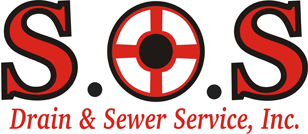You already know that flushing paper towels, feminine hygiene products, and other similar items can clog your sewer lines. What you may not know is that toilet paper can clog your pipes as well.
How can that be possible when toilet paper is intended for use in the toilet? Here are a few ways in which toilet paper could cause clogs.
Rough or Damaged Pipes
Cast iron or concrete pipes may contain a rough interior. This means that when toilet paper passes through, it is more likely to get snagged on the pipes. Toilet paper may also become stuck if your pipes are coated with grease or have been penetrated by tree roots.
Using too Much Toilet Paper
Your pipes can only hold a certain amount of toilet paper before they will become clogged. As such, it’s important not to use any more toilet paper than necessary. If you have small children in the house, you should also ensure that they do not carried away when using the bathroom.
Wrong Type of Toilet Paper
You may choose a toilet paper based upon how soft and plush it is. However, the softest, thickest brands are also the ones that take the longest to dissolve in your plumbing or septic system.
Toilet paper that contains lotion is especially problematic. The lotion will form a greasy film inside your pipes, making it more likely that toilet paper will stick to it.
To find the right toilet paper, place a square in a sink full of water. The ideal specimen will dissolve into small particles when fully immersed.
Use of Flushable Wipes
In some cases, toilet paper clogs are not caused by toilet paper at all, but rather result from the use of flushable wipes. Although personal hygiene wipes claim to be flushable, they are usually anything but. They are made from much thicker material that does not easily dissolve when placed in water.
If you do use these wipes, flush them with caution. Should you experience a clog, this means your plumbing is not capable of handling them and you should revert back to using regular toilet paper.
Low Flushing Toilets
Low-flow toilets operate with less water pressure than traditional models. This means that each time you flush, some buildup could be occurring in your pipes. Over time, this buildup can lead to clogs.
If you have a low-flow toilet, be mindful of how much you are flushing each time. You may need to do a few extra or “courtesy” flushes in order to keep things moving smoothly. You might also want to have your plumbing snaked out on occasion to eliminate any buildup.
Narrow Pipes
Some homes have very narrow pipes leading from their toilet. Naturally this means that if your pipes are smaller, they will not be able to move waste along as easily. What would normally flush if you had larger pipes will instead lead to a backup.
You may have narrow pipes if your toilet frequently overflows or requires snaking. Aside from replacing your pipes, there isn’t much you can do about this situation. To prevent clogs, you will need to remain conscious of the amount of toilet paper you are using and make it a habit to flush more frequently.
Help for Clogged Sewer Lines
These are just a few ways in which ordinary toilet paper could cause sewer line clogs. At SOS Drain & Sewer Service, we are experienced at clogged toilet cleaning, clearing drain clogs, and sewer line cleaning. Please contact us if you have a clogged sewer line and are anywhere in the Twin Cities area.



